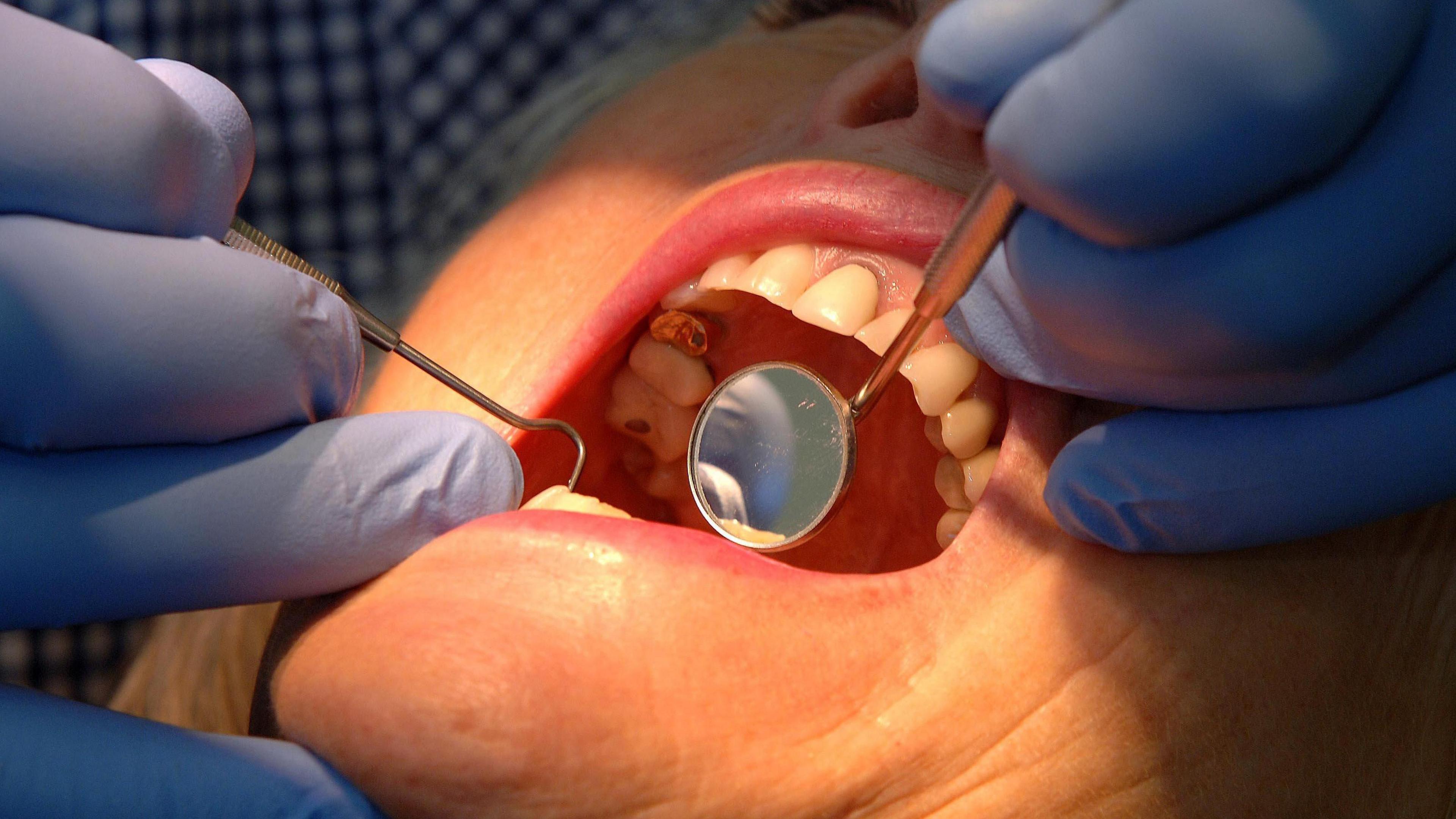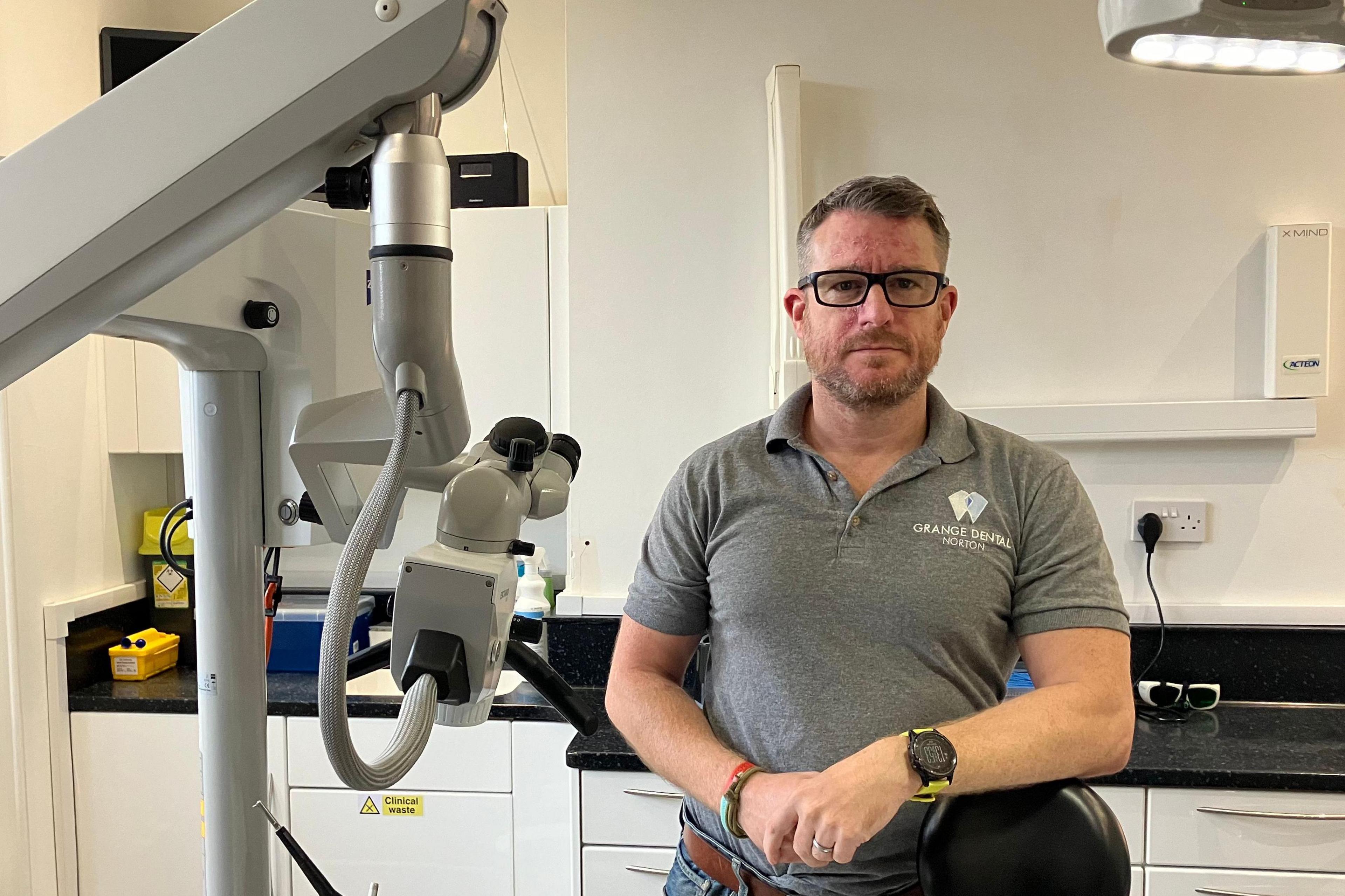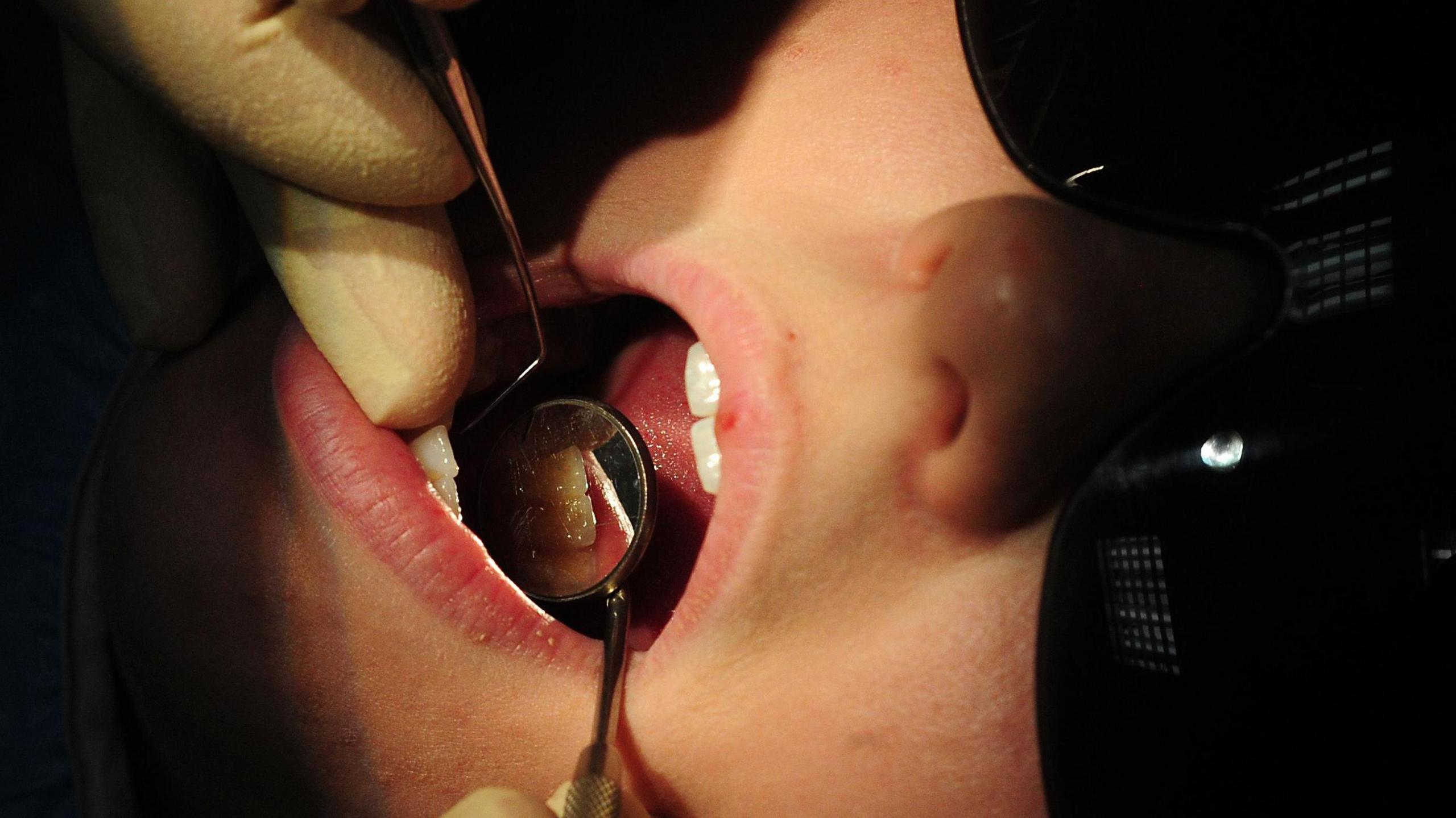Fluoride plan a 'great leveller' for dental health

The British Dental Association said adding fluoride to tap water in more areas of northern England would help improve oral health
- Published
Plans to add fluoride to drinking water in more areas in northern England would be a "great leveller" for dental health, the British Dental Association (BDA) has said.
The proposal includes much of the North East and some parts of Cumbria and North Yorkshire.
Stockton-on-Tees dentist and BDA board member Paul Woodhouse said it was not a "golden bullet" but it would give a "better base start".
But Dianne Standen, from campaign group Fluoride Free Cumbria, said the government "should not put it in the water until you've established 100% safety".
The mineral fluoride occurs naturally in water but more is added to the supply in some areas to help prevent tooth decay.
Mr Woodhouse said parts of the North East were socially deprived and "constantly rated as having very poor oral health" and extending fluoridation would help.
"It's not a golden bullet, it won't fix every problem, but it helps give everyone a better base start by having stronger teeth that are more resistant to dental decay," he said.
"I think it will be a great leveller."

Paul Woodhouse from the British Dental Association said adding fluoride to drinking water would be a "great leveller" for dental health
A US court, external recently concluded fluoridation posed an "unreasonable risk of reduced IQ in children", though the ruling did not "conclude with certainty that fluoridated water is injurious to public health".
Ms Standen urged the UK government to be careful.
"If you don't really know what the impact is going to be, you should be cautious about putting it in the water," she said.
"In fact you should not put it in the water until you've established 100% safety."
But Oliver Jones, a professor of chemistry at RMIT University in Australia, said the evidence was inconsistent and people should not be concerned by the US judgement.
"If X causes Y, then we should see that consistently," he said.
"We shouldn't be getting some results showing something and some of the results showing something else completely."
'Safe and effective'
The incoming US Health Secretary Robert F Kennedy Jr, who has often expressed views that conflict with scientific evidence, said the new government would advise against fluoridation.
An academic review also recently concluded the benefits may be less marked since toothpaste usage had increased.
A consultation on the plans to extend fluoridation in the UK took place earlier this year, external, with ministers expected to respond "in due course".
The Department for Health and Social Care said: "Water fluoridation at levels permitted in this country is a safe and effective public health measure that reduces tooth decay."
Follow BBC North East on X, external and Facebook, external and BBC Cumbria on X, external and Facebook, external and both on Nextdoor and Instagram, external. Send your story ideas to northeastandcumbria@bbc.co.uk.
Related topics
Related stories
- Published4 October 2024

- Published5 May 2024
